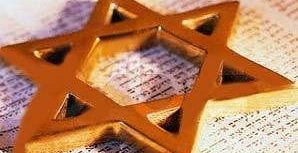
Public schools in Dayton, Ohio were just closed for three days due to snow and below-zero winds. What’s interesting with snow days is that schools are often the first public institutions to close. Other government establishments like post offices remain open. The same is true for banks, offices and malls. Perhaps one explanation is that young students have to wait outside for buses and under such conditions it’s dangerous. Or maybe it is merely a question of priorities.
Between 1952 and 1964, some 240,000 Jews came to Israel from Morocco, Tunisia, Algeria, Egypt, Yemen and Iraq. To ensure that Israel, with its small economy could provide for the immigrants, rationing was put in place on food, housing, and clothing. These immigrants were settled into transit camps, rows of tin shacks with one communal kitchen and public restrooms. People were listless and children wandered around with nothing to do.
In those days, the Rebbe instructed his Chassidim to set up Chabad schools in these camps. My uncle of blessed memory, Rabbi Hirsch Gansburg, had a brother Itchke, who got involved. He went from hut to hut, convincing the immigrants to sign a form indicating their interest. With these forms, Rabbi Gansburg requested that the authorities provide a building. “Nice idea,” they responded, “but there is no money for education.”
Undaunted, he borrowed two rooms from a nearby synagogue for some 35 students. As the second year approached, he registered over 100 children. He again approached the city but received the same answer, “There’s no budget.” So Rabbi Gansburg took action. The night before the start of the school year he brought a blacksmith to screw together two long tin huts divided into eight rooms. The next morning school started. The heat was unbearable.
A local newspaper came to visit, and within days, the entire Israel knew that near Holon, the “center of the country,” schoolchildren were learning in inhumane conditions. The publicity and public outcry did the rest. Presto, Itchke had a building.
It was then that Rabbi Gansburg, who had not visited the Rebbe for four years, decided to spend the High Holidays in New York with the Rebbe. But when the Education Department heard that the new school director was taking a ‘vacation’ they got angry. So Rabbi Gansburg wrote to the Rebbe outlining the issue.
To his chagrin, the Rebbe agreed with the Department. But Itchke could not stop himself, and so he traveled anyway. After arriving, the Rebbe’s secretary notified him that, “since you came here without permission, the Rebbe will treat you as if you are still in Israel.” And indeed, throughout his stay the Rebbe didn’t acknowledge him. Thus when everyone went by the Rebbe to receive some wine, one person did not get any: Itchke.
Rabbi Gansburg was heartbroken. When asked to explain, the Rebbe said, “You put a soldier on the front lines and he suddenly deserts.” In his memoirs, Itchke writes that he would never forget that painfully learned lesson on how important Jewish education is.
In this week’s reading, G-d commands that the Jews build a Mishkan, a desert Sanctuary. Its construction was so important that Jewish law posits that, “they were busy with it from dawn to the stars coming out, and everyone is obligated to build and help physically and monetarily, both men and women.” However, there was one sector of society that was exempt. In fact, they were actually forbidden to take part; schoolchildren!
Simply put: Jewish children studying Torah is more important than building G-d’s Temple. This point should be obvious from history. The Jewish Nation has survived for 2,000 years without a national Temple. But without schools, we would not stand a chance. Jewish schoolchildren are the single greatest guarantee for our people’s survival. If even one generation does not pass on our heritage, we have no future. Hence, other organizations may close for one reason or another, but a Jewish school must remain open.
Three hundred years ago, when the founder of the Chassidic movement, the Baal Shem Tov was 18 years old, he became an assistant to the teacher of young children. His duties were to recite with them the prayers and bring them to school and back home. In the wintertime he personally carried the little ones who couldn’t walk in the snow. Years later he remarked, “Those days were the happiest in my life.”
The Jewish apostate, poet Heinrich Heine (1797-1856) called the Torah “the portable homeland of the Jew.” True, the Romans might burn the Temple, but Torah remained indestructible. And because of that one fact alone, we the People of the Book achieved immortality.
